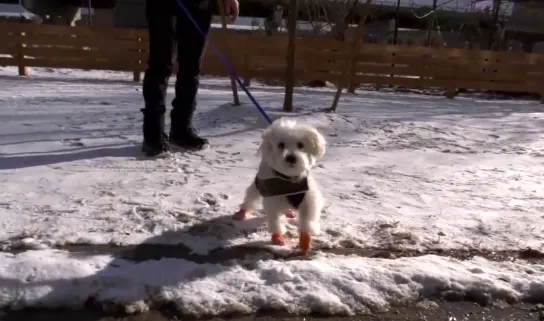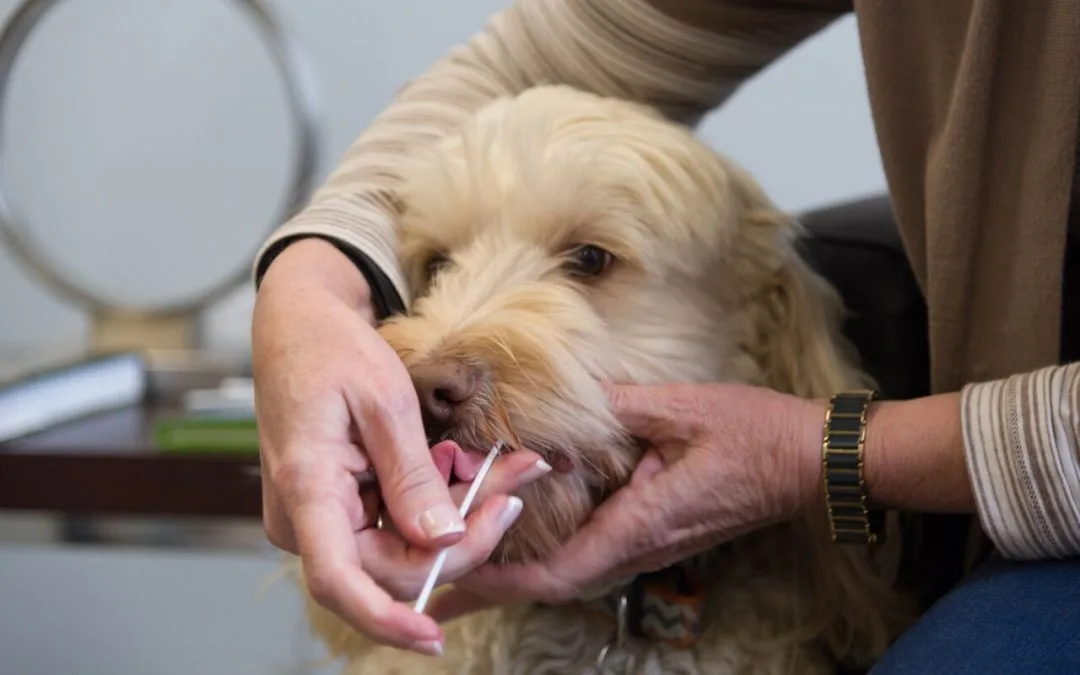
Using DNA tests to catch dog owners that leave waste behind
Canada’s dog population is booming, growing from 7.6 million in 2016 to 8.2 million in 2018, according to the latest Canadian Pet Population figures. But there’s a big problem: owners are not picking up their dog waste - and the statistics prove it.
Studies published in the Journal of Applied Psychology found that “... pet owners only picked up after their dogs slightly more than 60 per cent of the time,” and concluded “… those who don’t pick-up, also frequently lie about it and say they did.”
That’s where PooPrints comes in. The Dog DNA Registration Program for apartment and condominium communities is designed to keep pet owners accountable. Owners use cheek swabs to collect DNA from the mouth of their dog that will then be sent to PooPrints’ DNA World Pet Registry: a comprehensive database that stores, catalogs and manages pet information for a specific property.
So if a delinquent dog owner leaves their pet poo behind, condominiums and apartments can test the uscooped waste and precisely match it to the pet and parent.
So why would pet owners volunteer to do this only to be fined later if caught? If their condominium chooses to use PooPrints, they don’t have a choice. In fall 2018, PooPrints Canada partnered with Lash Condo Law firm to release a new set of Pet Rules incorporating mandatory dog DNA registration for condominiums.
“These rules require that dog owners must have a saliva cheek swab administered to register their dog’s DNA within 30 days of the rules being put into effect or getting a new dog, and pay a $60 fee to cover the cost of the DNA kit,” says Josh Milgrom of Lash Condo Law.
Garry Bradamore, President of PooPrints Canada, says the results happen fast, “There’s an immediate positive pet parent behavior change that happens when the program begins, and it’s all due to the accountability factor.”
Penalties for pet owners found to be leaving dog waste range from $150 - $350, depending on the condominium corporation’s expenses, to be paid within 15 days.

Credit: Revill Group
While the largest source of animal waste in Canada is farm animals, in cities the majority of waste comes from dogs and cats, according to the Canadian Public Health Association.
“A lot of people think dog waste is a fertilizer which actually couldn’t be further from the truth” says Bradamore. “In fact, dog waste has parasites in it, bacteria and so forth, that are both harmful for humans as well as other pets.”
Spring runoff and heavy rainfalls carry pet waste to rivers, lakes and bodies of water, increasing the bacteria count. This bacteria includes E.Coli and Salmonellosis, and can pollute beaches, threaten plants, fish, wildlife and people, with children being particularly susceptible to the diseases transmitted by dog poop.










